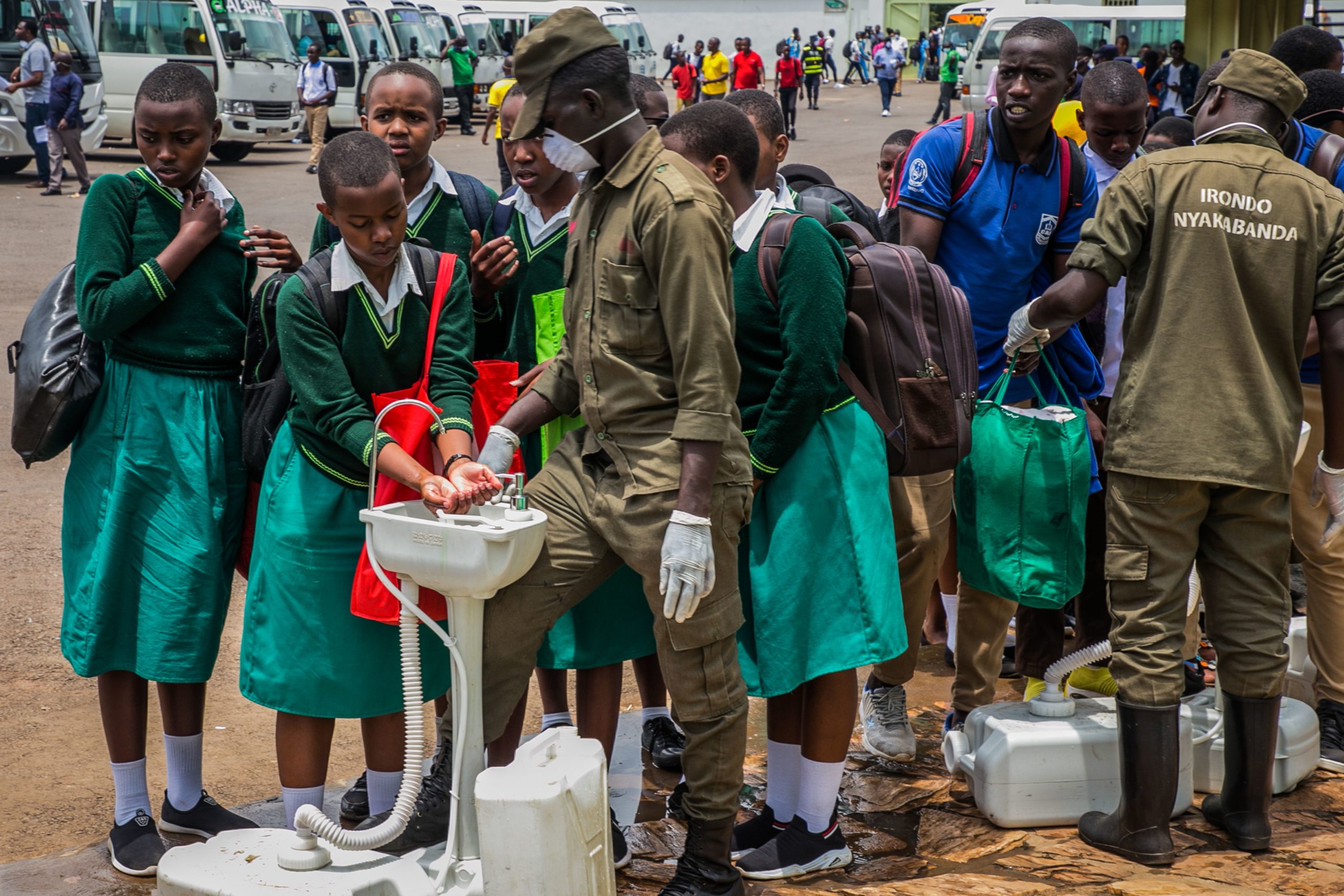DOWNLOAD PDF
THE ISSUE
Africa enters the COVID-19 period with familiar challenges that the crisis will worsen. While the situation varies by country, the majority of African countries have understaffed and underfunded healthcare systems as a result of decades of being neglected by African governments. Africa faces severe obstacles to accessing vaccines as a result of limited supplies of vaccines and a lack purchasing power. Vaccinations may not start before the middle of 2021 and for most, only in 2022. One statistic noted that countries in sub Saharan Africa have .2 physicians for every 1,000 people, while OECD countries have 2.9 for every 1,000 persons. These figures do not take into account the ticking bombs in camps and settlements hosting Africa’s displaced persons or its prisons. According to UNHCR, Africa had 24,213,204 displaced persons. These people live in overcrowded conditions, have minimal access to healthcare and are dependent on assistance from governments that are being overwhelmed by the COVID-19 crisis.
Africa’s economic progress will be decimated by the economic toll of the regional and global slowdown. Economic growth is expected to be halved as income from exports drops, foreign investment dries up and government revenue are reduced. Social distancing policies will hit the informal sector hardest as a result of halt of almost all economic activity.
Other areas of critical concern will be COVID-19’s impact on Africa’s conflicts. Somalia, Chad, the Central African Republic, Mali, Burkina Faso, South Sudan, north eastern Nigeria and Cameroon face conflicts that will not stop or go away, and hoping that the armed groups involved in these insurgencies will heed the UN Secretary General António Guterres’ call for a universal ceasefire seems too optimistic. The question is not if but by how much the capacity of government forces in these conflict zones will be degraded and what military partners such as the United States and the European union, already consumed with rebuilding their own economies, will be able or willing to provide.
Basic human rights, already under pressure in many African countries, will also be further at risk with the COVID-19 crisis. The ability of the security forces to protect and maintain the rule of law in a manner that adheres to international and regional standards is doubtful as accountability and civilian oversight will be diminished. Police and military have been videotaped beating individuals for violating shelter in place restrictions. Persons arbitrarily detained now face an even higher risk of indefinite detention with courts being closed. They also face increased risk of exposure to COVID-19 due to chronic overcrowding of prisons across the continent.
Critical among the other areas of concern will be protecting and promoting access to information. Information about how to best avoid catching the virus, information about where resources and support to survive having the virus are can acquired could now be the difference between life and death. At the same time, information about what governments are doing, what they are not doing, and whether resources are being allocated fairly will all be essential to containing and reversing rates of infection.
Unfortunately, the record regarding African governments and access to information is not encouraging. While there are safeguards for access to information at the regional level, too many African governments have laws that violate or restrict access to information or ignore their regional obligations by restricting freedom of expression and attacking independent media and human rights groups.
TALKING POINTS
- If this pandemic has taught us anything, it is that we are only as safe as those of us who are most at-risk, and we won’t be completely safe until those individuals most at-risk are vaccinated. Seventy lower-income countries may only be able to vaccinate 20 percent of their populace against COVID-19 in 2021, unless governments and the pharmaceutical industry take urgent action to produce more doses.
- The economic fallout of COVID-19 has been particularly devastating for lower income countries. Debt relief and robust funding through SDRs will allow the global community to build back a safer, better world for everyone.
RECOMMENDATIONS
To address these challenges, the U.S. President should:
- Support the proposed World Trade Organization TRIPS waiver for all COVID-19 related products, including vaccines, to facilitate increased supply of and access for African countries to these products.
- Instruct the Department of Treasury to support the issuance of $2 trillion in Special Drawing Rights (SDRs) by the International Monetary Fund so that African governments are able to survive the economic shock of the pandemic and access additional resources to finance their responses to the COVID–19 pandemic. (3) Press G7 and G20 leaders to cancel the debt owed by the world’s lowest income countries for at least the next two years, thereby freeing up resources for countries to respond to the pandemic.
FOR MORE INFORMATION, PLEASE CONTACT:
Adotei Akwei
Deputy Director, Advocacy and Government Affairs
(202) 509-8148
